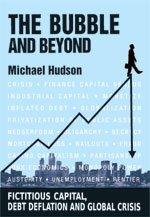By William K. Black
(Cross posted at Benzinga.com)
I examine how highly conservative newspapers are covering the interplay of widespread “control frauds” by the world’s most elite banks, the carefully structured de-evolution of financial regulators through descent from the subphylum Vertebrata into the phyla of the invertebrates, and the global failure to prosecute the elite frauds that drove the ongoing financial crisis. The three factors are interrelated. Vigilant financial regulators serving as the vital “regulatory cops on the beat” are essential to the successful prosecution of large numbers of elite financial frauds. Continue reading



 John Locke is the “father” of property rights theory, and continues to be referenced in defense of private property. In the second volume of his Two Treatises of Government, Locke specified the conditions that must be satisfied in order for property to be deemed legitimate. Initially, any property taken from “the commons” (public or collective property) had to be based on one’s labor that was expended to improve that property. (While Locke focused on landed property, his argument applies more generally.)
John Locke is the “father” of property rights theory, and continues to be referenced in defense of private property. In the second volume of his Two Treatises of Government, Locke specified the conditions that must be satisfied in order for property to be deemed legitimate. Initially, any property taken from “the commons” (public or collective property) had to be based on one’s labor that was expended to improve that property. (While Locke focused on landed property, his argument applies more generally.)








